Maintaining accurate financial records and meeting compliance standards are critical for businesses of all sizes. For small- and medium-sized enterprises (SMEs), these factors can make a significant difference in cash flow management, risk reduction, and long-term stability. However, many SMEs lack the resources to maintain a full-time, in-house accounting team with the expertise required to handle complex regulatory and reporting requirements. Here’s how partnering with an outsourced accounting team can help SMEs achieve high financial accuracy and compliance, providing a competitive edge while freeing up valuable resources.
1. Experienced Accountants Ensure Precision
When it comes to accounting, experience is invaluable. An outsourced accounting firm provides access to a team of highly skilled professionals trained specifically in financial reporting, bookkeeping, payroll, and tax compliance. Unlike in-house staff who might be handling multiple roles, outsourced accountants bring a dedicated focus to financial management, leveraging their expertise to manage complex accounts and transactions with minimal errors. This level of precision is especially beneficial for SMEs that cannot afford the cost of hiring full-time, highly specialized finance professionals. Additionally, outsourced teams are well-versed in industry best practices, ensuring that your accounts adhere to the highest standards.
Further, outsourced accountants often undergo continuous training to stay current with changes in accounting principles and compliance standards, enhancing their ability to maintain accurate records that meet regulatory expectations. For instance, they can efficiently manage double-entry bookkeeping and complex account reconciliations, spotting inconsistencies that could be easily overlooked by less experienced staff. This specialized knowledge helps to prevent minor errors from escalating into costly problems, providing peace of mind for business owners.
2. Access to Advanced Accounting Software and Technology
Many SMEs face financial and logistical barriers when it comes to investing in top-tier accounting software. Outsourced accounting firms, however, are equipped with the latest industry-standard tools, from cloud-based accounting platforms to AI-driven analytics, allowing them to perform tasks faster, more accurately, and more securely. These software solutions automate repetitive processes like data entry and reconciliation, dramatically reducing the risk of human error. They also come with built-in security protocols and backup systems, which protect sensitive financial data against loss or theft.
Furthermore, these platforms allow for seamless collaboration and real-time reporting. Instead of waiting for end-of-month or quarterly reports, business owners can access up-to-date financial information as needed, enhancing visibility into cash flow, expenses, and profits. Many accounting firms also offer customized dashboards and visual analytics that simplify complex data, making it easier for business owners to monitor performance metrics and make data-driven decisions. The cost savings here are significant: instead of investing in expensive software licenses and IT support, SMEs can access top-of-the-line technology through their outsourced provider.
3. Automated Error Checking and Quality Control
Automation is a game-changer in modern accounting, allowing outsourced firms to maintain higher standards of accuracy by identifying and correcting potential errors automatically. By integrating error-checking protocols into accounting workflows, outsourced teams ensure that every transaction undergoes a rigorous quality check before it is entered into the system. This process minimizes the likelihood of misclassifications, duplications, or other errors that could lead to inaccurate reporting.
Many firms also employ sophisticated data analysis tools that flag discrepancies or unusual patterns, prompting accountants to investigate before the final report is produced. For example, if a transaction is recorded in an unusual category or significantly deviates from previous months, the system alerts the accountant to review the entry. This proactive approach to quality control not only improves accuracy but also helps in early detection of any fraudulent activity or mismanagement, which could otherwise go unnoticed.
4. Consistent and Timely Financial Audits
Regular audits are essential for ensuring compliance and financial accuracy, but they’re often overlooked or under-prioritized by in-house teams due to time constraints. With outsourced accounting, audits become a consistent part of financial management, allowing for ongoing assessment and correction of any discrepancies. By scheduling regular audits, outsourced accountants can address minor compliance issues before they become major problems, helping to safeguard the business against penalties and legal challenges.
Additionally, outsourced firms follow established audit methodologies that meet industry standards, providing detailed documentation and transparency throughout the process. During an audit, they review a company’s entire financial record-keeping system, from payroll and expenses to taxes and financial reporting, ensuring that every dollar is accurately accounted for. This level of oversight gives business owners confidence in their numbers and helps to maintain a transparent financial profile that reassures investors, stakeholders, and regulatory bodies alike.
5. Compliance with Ever-Changing Regulations
Regulatory compliance is an area of accounting that can be overwhelming for small businesses, especially as tax laws and industry standards evolve. Outsourced accounting firms stay updated on regulatory changes, ensuring that your business remains compliant year-round. When a new rule is introduced or an existing regulation is updated, outsourced accountants are quick to implement changes in financial practices to keep your business in line with legal requirements. This proactive stance saves time and minimizes the risk of inadvertent violations that could lead to fines or other penalties.
For example, if a change in tax code allows for new deductions in your industry, an outsourced accountant would know how to adjust your tax strategy to take advantage of these benefits without delay. Similarly, they ensure compliance with labor laws, environmental regulations, and sector-specific guidelines that might impact financial reporting. This constant monitoring and adaptation shield your business from risks, reducing legal vulnerabilities and enhancing operational stability.
6. Improved Record-Keeping and Documentation
Accurate documentation is the backbone of financial management, and outsourcing brings a structured approach to record-keeping that minimizes errors and enhances accessibility. Outsourced accountants use systematic filing methods, ensuring that every financial transaction is documented, categorized, and archived correctly. These processes ensure that financial data is easily retrievable during audits or when preparing annual reports, making compliance simpler.
Proper documentation also improves accountability. With organized records, business owners can track exactly where funds are allocated and how resources are managed, leading to more accurate budgeting and forecasting. During tax season, this level of organization translates to a smoother filing process and reduces the chance of missing deductions or critical documents.
7. Accurate Tax Preparation and Reporting
Tax preparation is a highly detail-oriented task that requires a deep understanding of complex tax codes, deductions, and filing requirements. An outsourced accounting firm brings expertise to tax preparation, ensuring that all deductions are maximized and that returns are filed with complete accuracy. This reduces the likelihood of costly errors, such as underreporting or misclassifying income, that could prompt an IRS audit.
Furthermore, outsourced accountants stay up-to-date with tax deadlines, ensuring timely submission of all required forms and documentation. They also perform pre-filing audits to catch any issues before filing, providing an additional layer of accuracy. This attention to detail minimizes tax-related risks, enhances compliance, and frees business owners from the stress associated with managing taxes on their own.
8. Reduced Risk of Fraud and Financial Mismanagement
SMEs are often vulnerable to fraud, either due to inadequate internal controls or lack of oversight. An outsourced accounting firm provides stronger financial safeguards by implementing internal control measures that deter fraud and detect irregularities early. For instance, they separate duties among multiple professionals, preventing any single individual from having control over the entire financial process. This segregation of duties helps reduce the risk of misappropriation or unauthorized transactions.
Additionally, outsourced firms use secure portals and encryption to protect sensitive financial data, enhancing security and limiting access only to authorized personnel. With regular reviews and high levels of oversight, they can identify suspicious transactions quickly, minimizing the damage and preserving the integrity of your financial data.
9. Clear Reporting and Transparency for Better Decision-Making
Transparent financial reporting provides a solid foundation for informed decision-making. Outsourced accounting firms provide SMEs with regular, easy-to-read reports that give a clear view of cash flow, revenue trends, and profitability. These reports allow business owners to spot opportunities for growth or identify areas of concern, like rising expenses or declining margins.
Detailed reporting also ensures that stakeholders have a reliable view of the business’s financial health, building confidence in the company’s operations. By providing transparent, data-driven insights, outsourced accounting helps business owners make strategic decisions that drive long-term success.
10. Real-Time Monitoring and Control
Unlike traditional accounting models, outsourced accounting offers real-time monitoring, allowing businesses to stay on top of their financial data at any moment. This real-time access enables quick adjustments and reduces the chance of cumulative errors, as financial data is continuously updated and reconciled. For a business experiencing rapid growth or seasonal fluctuations, this immediacy allows for agile financial management and better planning.
Real-time monitoring also aids compliance by highlighting any issues as they arise, giving business owners the opportunity to address potential compliance risks proactively. This level of control provides business owners with peace of mind, knowing that their finances are constantly being monitored and optimized.
Conclusion
Outsourcing accounting offers a pathway to enhanced financial accuracy and compliance, providing SMEs with resources, expertise, and technology that would be otherwise difficult to maintain in-house. At ACGDEPT, we help businesses achieve operational clarity, mitigate risks, and make informed decisions through our outsourced accounting solutions. If you’re ready to see the benefits of accurate and compliant financial management, we’re here to help you every step of the way.


